As the country eased lockdown measures, dealer groups were busy exploring how automotive retail working life will change.
Servicing and MOT providers had been able to continue operating, but showrooms shut up shop in late March as soon as the Government introduced lockdown. Throughout the closure period, dealers had been able to engage in online sales, but returning to the workplace itself, created a host of issues dealers needed to overcome.
Graeme Potts (pictured), Eden Motor Group chief executive, had been planning the return to work almost from the beginning of lockdown to include contactless and screened methods of customer interaction, personal protection guidance and equipment and revised working and customer handling processes.
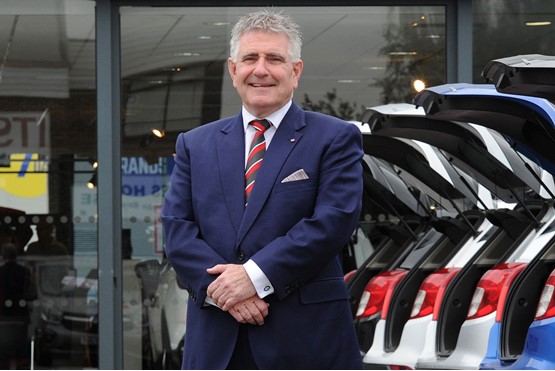 He said: “We anticipate it will be some while until all colleagues are back working in their ‘normal’ office or departmental workspace. We intend to continue with home working for as many colleagues as possible and practicable to give maximum space for social distancing for those who need to be in our retail centres. We anticipate unfurloughing colleagues in waves as the confidence to transact on the part of customers returns.”
He said: “We anticipate it will be some while until all colleagues are back working in their ‘normal’ office or departmental workspace. We intend to continue with home working for as many colleagues as possible and practicable to give maximum space for social distancing for those who need to be in our retail centres. We anticipate unfurloughing colleagues in waves as the confidence to transact on the part of customers returns.”
Leeds-based Luscombe’s reopened its aftersales facility on Monday, May 4, implementing a range of measures such as using infrared thermometers to check temperatures of staff, extra protective covers inside cars, disinfecting interiors and keys, and installing ‘sneeze’ screens.
Initially, collection and delivery was not offered and customers were not allowed access to the waiting area or showroom.
Managing director Robin Luscombe said: “It’s going well, customers are happily accepting that we are doing what we can in difficult circumstances. The difficulty will be scaling up and maintaining staff and customer distancing. But, so far, so good. We are still waiting for some personal protective equipment (PPE) to arrive, so we are managing with what we have. Overall, I am very happy with the first stage.
“Initially, by only providing a limited number of available hours, we are keeping everything very low key and controlled, one-way systems, additional cleaning, fewer staff, less customers, appointment only, no parts deliveries. Once we build confidence and iron out issues, we plan to slowly increase workforce and workload. Marketing, prospecting, accounts can work from home, at least part-time, as they come back from furlough.”
This feature was first published, here, in the July Issue of AM magazine.
Luscombe had called for more flexibility with what had been the all-or-nothing furlough scheme, as a part-time scheme would enable more people to be involved and build back up to a full reopening. With full working or full furlough a potential barrier to restoring a complete workforce, Luscombe welcomed Chancellor Rishi Sunak’s announcement that part-time furlough would be available from next month (August).
TrustFord had been working on a range of comprehensive measures for reopening such as showrooms marked out for social distancing while safe vehicle handovers, part-exchange processes, test drives, remote selling and ‘not touch’ payments could already be facilitated.
NO HOT DESKING ALLOWED
PPE has been procured and will be provided at every site, cough screens were placed at all sales, service desks and in office areas, technicians will work at every second ramp, hand sanitisers will be available for customers and colleagues, desks were being rearranged to create safe working areas and hot desking is not permitted.
Meanwhile, IT teams will work on enhancing office and remote working needs in anticipation of new working practices being in place for a long period and the business has been reviewing extended hours and shift patterns to support customer needs and accommodate required safety measures.
Sharon Ashcroft, TrustFord HR director, said: “Our number one priority is to make sure we are providing all the reassurance, training and guidelines to facilitate a safe return for everyone. No site reopened until we were 100% comfortable that the set-up is as safe as possible.”
Throughout lockdown, contact had been maintained through its employee app, providing latest payment and policy information, wellbeing advice, links to training while on furlough and even competitions, quizzes and ‘happy birthday’ messages. The app relays news on work in the community such as the give-away of free disposable seat covers to community nurses and carers and the chat function allows questions to be posed and answered.
Ashcroft added: “Staying connected has been critical to staying connected as a business and the app will continue to be actively used as we move towards bringing more colleagues back into the workplace.”
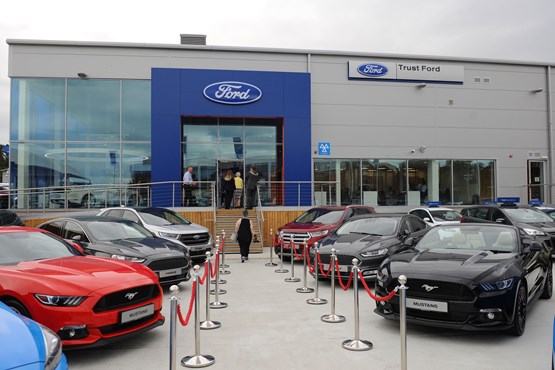 While the two-metre distancing rule can be applied in showrooms and workshops, it is impossible in a test drive situation. Following lobbying from the National Franchised Dealer Association, the Driver and Vehicle Licensing Agency (DVLA) has confirmed test drives on trade-plated vehicles may be carried out unaccompanied provided dealers have the correct insurance in place.
While the two-metre distancing rule can be applied in showrooms and workshops, it is impossible in a test drive situation. Following lobbying from the National Franchised Dealer Association, the Driver and Vehicle Licensing Agency (DVLA) has confirmed test drives on trade-plated vehicles may be carried out unaccompanied provided dealers have the correct insurance in place.
However, it’s not just the practicalities that employers are grappling with, but the wellbeing of both staff and customers who will be reluctant to enter environments which could pose a contamination risk.
While pointing out that this is an unknown, Potts said: “I believe there may be some frustrations for colleagues who enjoy the historic pace of work which may well be slower post-lockdown. Nevertheless, overall, I think there will be team orientated and very cooperative working where self and community interest is supreme.”
Ashcroft said: “Our plans include a measured programme to ensure colleagues will not be overwhelmed and to make sure customers are being looked after to our normal high standards of customer care.”
PUT YOUR PEOPLE FIRST
Sewells, which delivers business and leadership programmes to the sector, urges dealers to put their own people first: “Conversations that dealers need to start with are ‘how’s the family?’ ‘how are you?’ ‘how are you coping?’. Getting back into the swing of it will be difficult and ‘it’ will be different than the ‘it’ beforehand.”
Meanwhile, dealer leaders will have to help employees adopt a new mindset to be ‘ready’ to deal with the unknown.
The Sewells spokesperson said: “You cannot write a contingency for everything that’s going to happen because people are going to be coming from all sorts of directions and will want to be dealt with in so many different ways. We have got to have agility and nimbleness. It will be very much more on an individual basis rather than the sheep-dipping we have had in the past.
“It will be a great opportunity to build significant relationships with both employees and customers on a personal basis. Businesses that take the time to understand the customer and what they have been through and adjust services to suit an individual’s situation will ensure they have a customer for life, not just for now.”
Finally, it may be a case of stating the obvious, but pay rises are unlikely this year although, with a reduction in sales and, therefore, commission payments, some dealer groups may introduce a higher basic.
Until coronavirus, BDO was expecting to see an uplift in pay this year following its 2019 annual Motor Salary Survey which revealed a decline in automotive retail pay for
the first time in five years.
Head of motor retail Steve Le Bas said: “In January and February, we thought it was going to be a great year for the sector but that’s now been pushed back by 12-18 months.”
Jemca Car Group has been putting measures in place that include two-metre distancing throughout its facilities, installing several sanitising stations, face masks for staff, touchless thermometers, specialist sanitisation of all demonstrators and customer vehicles, unaccompanied test drives, ‘no go’ areas, and regular cleaning throughout the day.
Returning to full operations will take place in phases, the first took place on Monday, May 18, when a skeleton aftersales staff returned to its 11 centres with MOTs and servicing on a strict appointment basis.
However, the group has continued to support key workers including helping around 100 with the loan of cars or carrying out minor repairs. The group’s contact centre had been notifying customers of reopening and some sales staff also returned to facilitate delivery of vehicles ordered since March, on a strict external pre-arranged pick up.
From June 1 all frontline furloughed staff were due to return and the group will implement two shifts enabling its dealerships to revert to normal opening hours, although an appointment system
will still prevail. Meanwhile, non-customer-facing employees will continue to work from home.
Jemca’s president David Collis said: “By no means are we returning to normality and our staff and customers face some dramatic changes in working and buying patterns. It is essential we apply these strict conditions to keep to our main objective of ‘safety first’.”



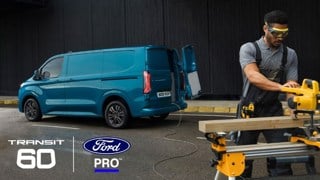

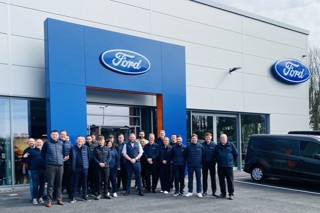
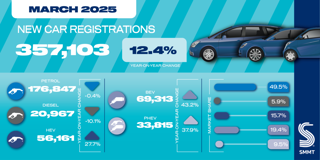











Login to comment
Comments
No comments have been made yet.